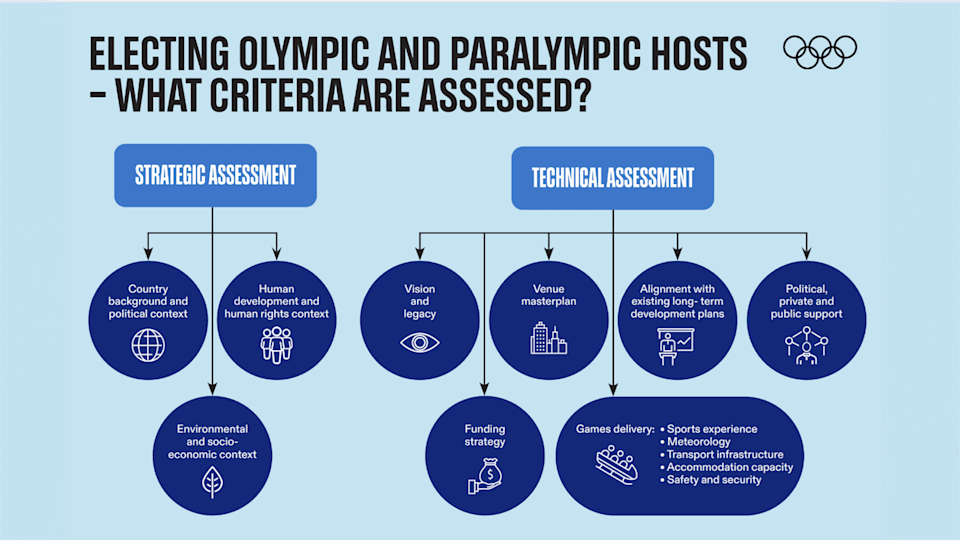Electing Olympic and Paralympic hosts: Targeted Dialogue explained
Key things to know about how the International Olympic Committee decides whether to open a Targeted Dialogue with a Preferred Host for a specific edition of the Games

The political, environmental, socio-economic, human development and human rights contexts are taken into account
The IOC analyses third-party sources and commissions independent reports in key areas such as public opinion, potential environmental impact and the human rights situation in relation to the Games’ organisation.
Potential hosts must explain the “why”
The vision behind the Games project and the benefits it would bring to local communities should be the starting point of any project.
The Games should adapt to the host, not the host to the Games
The project must be aligned with local long-term socio-economic development plans. Existing venues should be used as much as possible, even if they are outside the main host region. New venues should be built only if there is a solid legacy and business case, in line with the needs of the population.
Any project should have strong public and political support
It is the responsibility of the Interested Party to demonstrate this support, in line with the laws and political culture in its country.
The budget must be balanced
The funding strategy should have realistic revenue projections, taking the local market into account.
Every aspect of Games delivery will be examined
The experience of the athletes, fans and other Games participants are paramount.
What happens during Targeted Dialogue?
An “Interested Party” for future Games becomes a “Preferred Host” for a specific year
Once a Targeted Dialogue has been opened, no other city, region or National Olympic Committee can apply to host that edition until the International Olympic Committee (IOC)’s Executive Board has decided whether there should be an election.
The Preferred Host answers the Future Host Questionnaire and provides commitments to deliver the Games
The host provides detailed plans: about its project; the vision, masterplan, experience for athletes and fans; sustainability, legacy; governance; and economic model. These plans are backed up by a number of guarantees from the host country authorities or other relevant third parties, addressing key elements required to successfully deliver the Games.
The IOC examines every aspect of the project
Targeted Dialogue represents a deep dive into a project. The IOC commissions independent reports in key areas such as venue costs, public opinion and potential environmental impact.
There is extensive consultation with stakeholders
The IOC draws on knowledge and experience from across the Olympic Movement, for example from International Sports Federations and other experts, on everything from venues to human rights.
Targeted Dialogue can result in a host election
At the end of a Targeted Dialogue, the Executive Board can put forward one or more Preferred Hosts for election by the IOC Session. If one or both parties feel the time is not right, or the conditions have not been met, the Future Host Commission can recommend the Preferred Host goes back to Continuous Dialogue.
Other potential hosts can continue their projects for future Games
Opening a Targeted Dialogue does not mean saying “no” to other Interested Parties. They can choose to continue working on their Olympic projects in collaboration with the IOC, with a view to staging a future edition of the Olympic Games.
Find out more: Becoming an Olympic Games Host